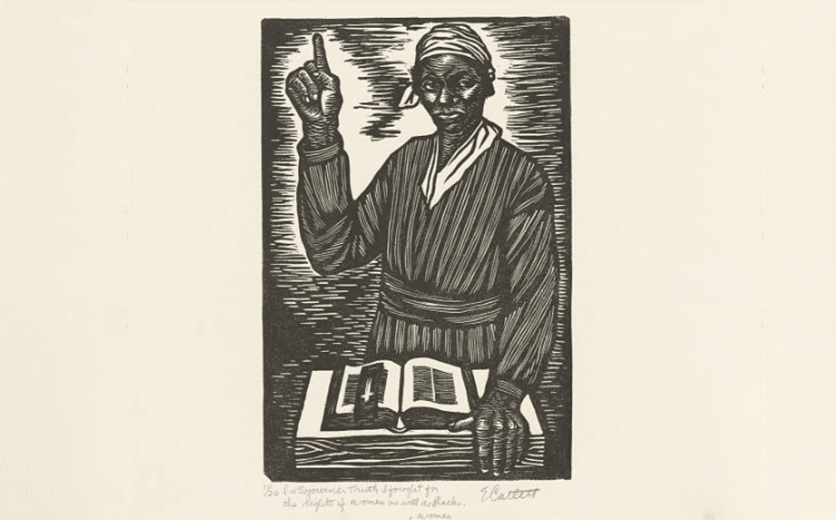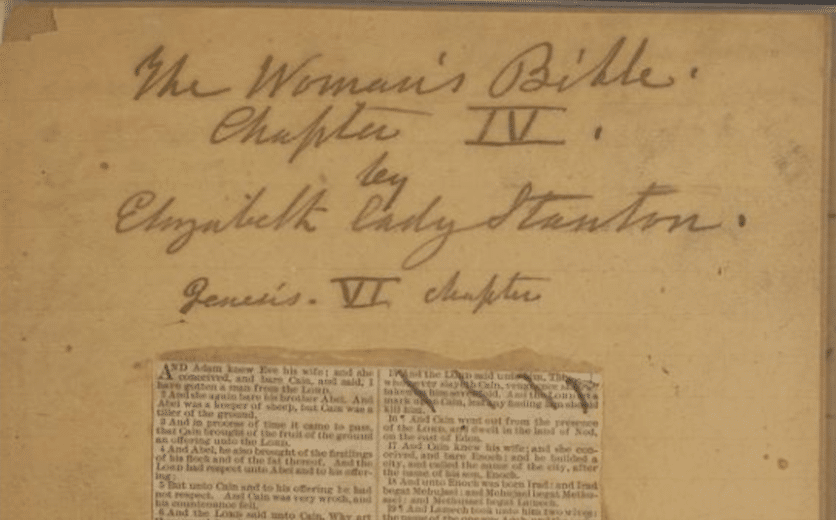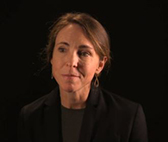Why were American women denied the right to vote until the twentieth century?
The right to vote in the US was at first restricted to white male landowners, but over time more groups were folded into that right. African American males, for example, began to vote in 1870, but women had to wait until 1920, when the ratification of the Nineteenth Amendment guaranteed women the right to vote. American women (and some men) had argued for women’s equality for nearly a century before this milestone, but they faced opposition from many quarters. The liquor industry, big business, and political party bosses secretly contributed to antisuffrage efforts, worrying that women voters would work against their interests. Some women, often allied with powerful men, also opposed votes for women.
The arguments against women’s suffrage (voting rights) varied, but few said outright that women were inferior or subordinate. They argued instead about woman’s nature and dignity. Her nature was best suited to the home, some said, not the public rough-and-tumble of politics. Woman’s duty was to educate and civilize the next generation. She already possessed considerable power and status in the domestic sphere, which voting would undo.
Does the Bible argue for or against women’s equal rights?
A few antisuffrage advocates invoked the Bible, recommending women follow Jesus’s example of self-sacrifice. The Bible, however, suited many women’s rights advocates as well, including Sarah Grimké, Sojourner Truth, Lucretia Mott, Frances Willard, Frances Watkins Harper, and Antoinette Brown. They saw both the Hebrew Bible (Old Testament), with its egalitarian creation story and women prophets, and the New Testament, with Jesus’s teaching and positive treatment of his women associates, as allies in their quest for equal treatment.
Sarah Grimké, the earliest American to use the Bible to argue for women’s rights, wrote a series of letters promoting gender equality to a fellow abolitionist in 1837. She pointed to Gen 1:26–27, emphasizing that male and female were both created in God’s image, in the same way and at the same time, saying, “there is not a particle of difference” between them. She noted that Adam and Eve both ate the forbidden fruit, and the prediction of women’s subordination in Gen 3:16 was a simple prediction, not something God approved of. She and later feminists in the nineteenth century rehearsed these arguments and more, citing biblical women prophets, oracles, and disciples as role models. Sojourner Truth sensibly said, “Well, if woman upset the world do give her a chance to set it right side up again.”
Not all women were convinced the Bible preached equality. A founding mother of women’s rights, Elizabeth Cady Stanton, edited and wrote much of The Woman’s Bible, a commentary that focused on parts of the Bible relevant to women. While Stanton noted a few bright spots, such as mention of Jesus’s mother, the narratives and characters (except Jesus) did not score high as advocates of women’s rights. Rather, she saw the Bible as part of a great wall of text, clergy, and church that supported a male-dominant culture and thwarted women’s equality. A few women, like Ernestine Rose, a rabbi’s daughter and atheist, even argued that the Bible was irrelevant: equal rights rested on natural law and human rights.
In the early twentieth century a wave of conservative “back to the Bible” sentiments appeared with the publication of an influential series of pamphlets called The Fundamentals. While the series did not address women’s rights directly, its literalist stance stood opposed to the more critical approaches used by Grimké, Stanton, and other women’s rights advocates. The women’s writings, along with suffragist marches, hunger strikes, and political actions, finally bore fruit in the passage and ratification of the Nineteenth Amendment in 1920, granting all American women the vote.
Bibliography
- Grimké, Sarah Moore. Sarah Grimké: Letters on the Equality of the Sexes and Other Essays. Edited by Elizabeth Ann Bartlett. Yale University Press, 1988.
- Setzer, Claudia. “The Bible and the Legacy of First-Wave Feminism.” Pages 183–91 in The Bible in American Life. Edited by Philip Goff, Arthur Farnsley, and Peter Thuesen. Oxford University Press, 2017.
- Stanton, Elizabeth Cady. The Woman’s Bible. 1895–1898. Repr. Dover, 2002.





